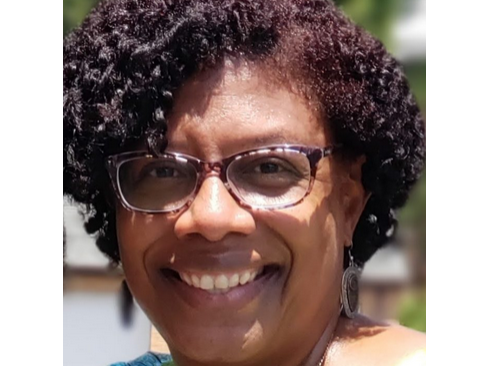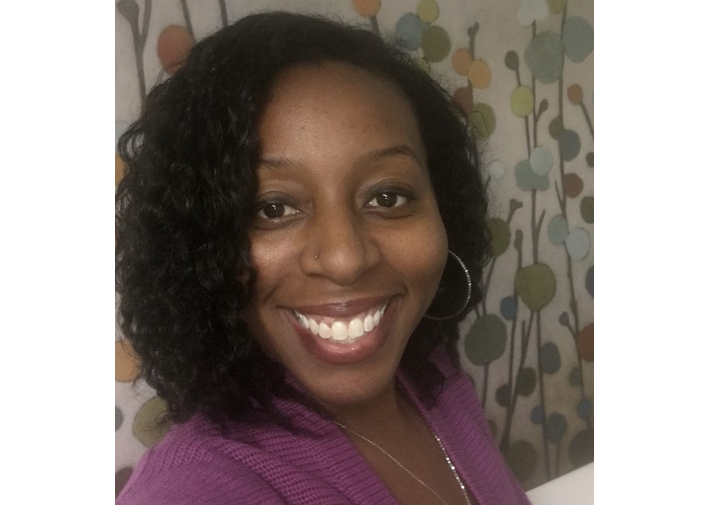The Leadership Initiative invited its members to reflect on different aspects of leadership, bringing to light unique pathways, approaches, challenges and lessons learned. TLC hopes that through this series you get to know these diverse individuals and take away an appreciation for their journeys and leadership skills and its impact on the lives of children, families, their staff and communities.
Florence Barbour is the Executive Director of Harbor Child Care. Prior to being the Executive Director, she spent the last nine years working in different capacities as the Director of Professional Learning and Director of Child Care. Mrs. Barbour is also a member of the Long Island Leadership Initiative’s Advisory Council. I had the honor to interview Florence and learn more about her leadership journey.
What has been a significant person in shaping your leadership?
The person who has been impactful in shaping my leadership was my previous supervisor Clare, Director from the United Cerebral Palsy NYC (UCP/NYC) Child Care program. At the time, I was the Assistant Director of the Center which is a program that serves children birth to five years of age, including children with special needs. The Director impacted my leadership style and stance because she led with kindness, fairness, honesty and transparency. Everyone enjoyed working with her. She would roll-up her sleeves and get into it. Now as I reflect, I do not model myself exactly after her because each leader is their own person – however, she greatly impacted my view of leadership. True leadership means to inspire people to be their best selves and to want to do more and do more. Genuine leadership is to always encourage people, not to look at people’s flaws but rather their strengths, capitalize on that strength and see what they bring to the table. Genuine leadership is always encouraging, never disparaging.
So my tip to others includes:
- Surround yourself with people who will support what you don’t know.
- Words have power, try to never approach any conversation and have people leaving feeling less than or not empowered or not encouraged. Our role is to build people up.
When did you recognize that you are a leader?
Well, my journey goes back to my college years. I was a junior in college at Rutgers University. My best friend/roommate wanted me to become a resident advisor on campus since she wanted to do the same. Now, I did not want to do this at all, however I decided to support her and followed along. Funny enough, she ended up not doing it and I actually became the advisor. When I first started this position, I didn’t do it well. As I allowed myself to learn and be more present I began to find my voice and realize what leadership is all about.
As I think about being a leader, I believe leadership takes on different roles. For example, while earning my second graduate degree I found myself leading the classwork with my cohort. We had a huge project due and my group was all over the place. At that moment I saw an opportunity and I stepped up and said, “Listen guys, we need to make this happen.” So I organized and managed the flow of the work and created a detailed document where everyone was accountable for what was submitted to the professor. This was leadership. We sometimes think leadership needs to embrace fancy titles and high degrees, but really when we think about it, leadership occurs in the subtle moments and can be seen in our day to day work. Coming to work and being present and owning the classroom space, that is leadership. Also, part of leadership is knowing when to step back and not take the lead. I don’t know it all. I acknowledge that I may not have the expertise or knowledge for a topic or issue, and so I know when to step back and give someone else the floor. Being self-aware is a key component of leadership and knowing when to step in as well as step back.
What is the biggest or most significant challenge you face in your leadership?
Wow, that’s a good one. My great “aha” moment was realizing that I have a certain way of thinking about things. Not everyone thinks like me. I had to realize that not everyone will approach leadership from the same lens and that I have to be okay with that. Now, this is not an easy thing to do. I had to challenge myself to develop this lens. I’ve been working on this for the past 4-5 years. For example, I approach my work from a lens of kindness and strength. One time a colleague approached the work from a rigid and narrow lens. Oftentimes emails were sent that had a tone of being very non-congenial, aggressive, derogatory. At that moment I had to pull back and sit with the emails for a moment. Do I react or how can I read this email from a space where I can separate the message from the messenger? I must remind myself that leadership takes patience and will take you down a number of paths. I was able to separate the message and the messenger, but I did make it clear to that person that my philosophy of leadership does not include the tone that was presented in the email.
When confronted with a challenge that is associated with either your race and/or gender, how do you proceed?
I will always acknowledge it first and then address it. I will not stand by and not address racist or sexist or any of the isms if things occur within my space. I do feel it is a disservice if I do not name it. I do not like to confront people but rather pull people aside and ask a question or let someone know that what they said is not appropriate. I must be honest, sometimes I’m caught off guard by comments that I hear in 2019 and 2020. I’m stunned and speechless that sometimes I don’t have the words to say anything at the moment but will circle back with that person and inform them that this may not be the right way. Sometimes I find myself making a joke out of a comment that sort of addresses the comment. From my experience, I don’t think confrontation heals or moves the conversation forward. It actually ends up shutting people down. As a BIPOC, I often experience many micro aggressions and direct racial aggressions. For example, I recently had my hair braided, and proudly wore it with gold beads scattered throughout. A couple of months later, I decided to take my braids out and let my hair be natural. A colleague of mine said, “Oh wow, now your hair looks professional.” I thought to myself, okay, as compared to what, my braids? I was totally caught off guard, speechless. I could not believe that braids were considered unprofessional. This is why the Crown Act is so important to me and women of color. You know sometimes I wish I could walk through the earth without people seeing me first as Black and then as a woman. Another micro aggression that I commonly experience is being the only black woman in the meeting and being told on numerous occasions, “You speak so well.” I say to myself, as compared to whom? Being the product of Haitian parents who demanded excellence from all their children, it stands to reason that I speak properly. However, I’m able to “code-switch.” I’m able to have conversations in the boardroom and on the streets. We as a “people” are able to do it more readily because we are forced to. Thinking back to my childhood and now, I have been blessed to have been sheltered from racism and sexism as it is in our society until I went to college. Then I had no choice and was forced to confront and deal with it. As we speed up today, just this past month, I’ve encountered three separate instances where children were exposed to racism in ugly ways, and one of those instances hit home because my daughter had to experience deep fear.
How have these moments influenced your leadership?
When I think about how these experiences have influenced my leadership, I recognize that I need to know my audience as well as how to approach them. I have learned different skills to have hard conversations with people. One leadership skill that has supported my work is being able to pause, take a step back and listen and examine. It is important that when you feel a certain emotion, you pause and determine if the context is the right place to show that emotion. As I think about what it means to be a leader in this way, true leaders lead by example. Our words and actions matter. Oftentimes in today’s world our words and actions are causing division but we need to reframe and rethink to create hope and unity. Throughout my leadership journey two scriptures guide my work as a leader: Trust in God with all your heart, Proverbs 3:5, and Do everything in love 1 Corinthians 16:4. Together these words have grounded me to walk in love, lead by example, and find trust and patience when at times it may be difficult.
Dr. Cristina Medellin-Paz is the Institute’s Career Development Coordinator for Long Island.



Thank you Clare and Joann for your kind words. You both have truly been my inspiration in the work that I do serving our youngest learners.
Wonderful interview, Florence. But you seem to have omitted one of your biggest strengths…your sense of humor! I have always believed in the power of humor in leading both children and adults.
Especially when it comes to guiding or “confronting” behavior. Don’t lose sight of your humor as you lead. It’s one of your many strengths! ❤️
Florence,
I am so proud of you. I admire your strength, dedication, and commitment to children and families. Continue your fine work and continue to speak your truth. God bless you. With Admiration. Clare